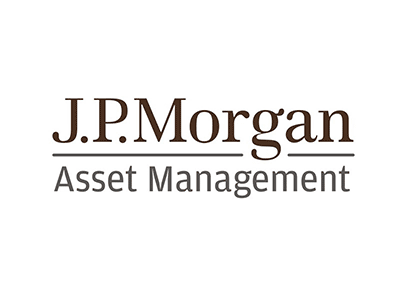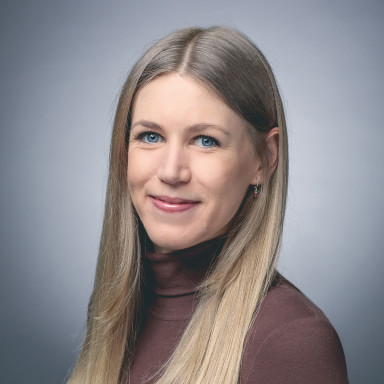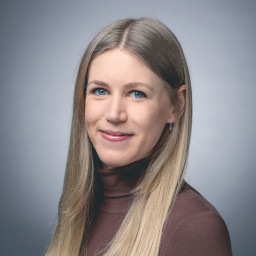- The fund's managers have years of experience of investing in emerging markets
- They also benefit from the research carried out by a large team of portfolio managers and analysts based across the globe
- A focus on quality companies with sustainable growth prospects provides the potential for long-term growth, though there are no guarantees
- This fund is on our Wealth Shortlist of funds chosen by our analysts for their long-term performance potential
How it fits in a portfolio
The JPMorgan Emerging Markets fund provides broad exposure to emerging economies, including China, India, Taiwan and Brazil. Emerging markets offer lots of opportunity for investors, but they're higher risk and typically more volatile than developed markets. This makes the fund a more adventurous way to try to grow wealth over the long term. It could help diversify a global portfolio focused on long-term growth and sit well next to funds that mainly invest in developed markets.
Manager
Leon Eidelman is lead manager of this fund, and works alongside co-manager Austin Forey. Eidelman joined JPMorgan in 2002, became co-manager of JPMorgan Emerging Markets in 2013 and was appointed lead manager in 2016. He has final responsibility over which companies make it in and out of the fund, but also makes use of the input and challenge provided by Forey.
Forey is an emerging markets stalwart and has been involved with the fund's management since its launch in 1994. With years of experience behind him, he provides valuable support. Both managers also run or contribute to other emerging markets portfolios at JPMorgan, using the same core process throughout.
While the managers have plenty of experience investing in emerging markets, they also draw on a well-resourced team for ideas and analysis, who are based in eight countries across the globe. We think this is invaluable given the vast range of countries and companies the team needs to consider, and it also means they've been able to expand their research coverage over time.
Process
The managers aim for the fund to perform better than the broader emerging stock market by investing in high-quality companies that can sustain earnings growth over the long term. They believe most investors underestimate the potential for share price growth in companies that can grow their earnings at a sustainable pace over a long period of time. This could help them buy company shares at a reasonable price and hold on to them as they grow their profits, and hopefully their share prices, over the long run. The process is considered to be ‘growth’ focused.
As lead manager, Eidelman is in charge of how the fund is constructed. He also leans on the wider team of analysts who carry out extensive research and provide new ideas. They typically travel across the region to visit companies and gain insight into what's happening in different economies.
The team looks for quality companies with the aim of calculating how much a company will grow its earnings over the next five years. They consider the financial strength of a business, the quality of the management team and the decisions it takes, and the level of corporate governance. Other factors, such as the dividends a company pays and how changes in a country's currency might impact a business, are also considered.
The managers mainly invest in large, established firms, but also invest in some medium-sized companies with greater growth prospects. They also have the flexibility to invest in higher-risk smaller companies, though they have tended not to venture in this area of the market.
The fund is currently mainly focused on three core areas: the technology, financials and consumer sectors. These sectors could benefit from rising incomes and consumption across developing markets. Some of the fund’s biggest investments currently include TSMC (Taiwan Semiconductor Manufacturing Company), South Korea’s Samsung Electronics, Indian financial services bank HDFC Bank, and online marketplace MercadoLibre, which is based in Argentina.
India and China currently make up the largest part of the fund, at 24.3% and 19.1% respectively. The amount invested in China has been reduced though as the managers are mindful of increasing risks, such as the influence of the Chinese government on policy that could impact businesses. That said, as the Chinese market is wide and diverse, the team continues to find opportunities in select parts of the market. Following recent market falls, Eidelman added to some companies at cheaper prices.
On the other hand, he’s sold shares and taken profits from some Indian companies – they have performed well and in some cases their shares don’t look as attractively valued.
Culture
JPMorgan is one of the world's biggest asset managers. It has investment professionals based all over the world, and the team behind this fund can tap into this experience and local knowledge. The group is home to a strong emerging markets offering and the team is stable, with low turnover among senior members.
Eidelman and Forey have remained loyal to the group and spent their entire careers at JPMorgan and we think they are dedicated to the emerging markets group. We view it positively that the managers are incentivised to focus on long-term performance.
ESG integration
JPMorgan committed to integrate ESG (Environmental, Social and Governance) factors into their investment processes for active funds in 2016 and ESG is now a foundation for investment decisions across the firm. Fund managers also have access to the central Sustainable Investing team, as well as thematic research and analytics, which focus on climate change and carbon transition.
The managers of this fund have considered sustainability issues as part of their investment process for many years. They favour companies with strong governance, which could enhance a firm's reputation, and actively engage with businesses to help reinforce positive behaviour. ESG forms a core part of the analysts' research process, including their risk checklist.
Cost
This fund is available at an annual ongoing fund charge of 0.58%, after a 0.25% discount available through the HL platform. Before the discount the charge is 0.83%. The fund discount is achieved through a loyalty bonus, which could be subject to tax if held outside of an ISA or SIPP. The HL platform fee of up to 0.45% per year also applies.
Performance
The fund has performed better than the average fund in the IA Global Emerging Markets sector over the past decade, growing 82.25%* vs 63.17% for the sector average. It’s also outperformed since Eidelman has been involved in its management. There have been periods when the fund has underperformed though, and this will happen at times in the future too.
While emerging stock markets have delivered growth over the long term, the past year has been a tough one, partly due to geopolitical and growth concerns in China. The average fund in the sector has lost 9.97% over the year to the end of November 2022, and this fund has fallen further.
The fund’s quality-growth investment process fell out of favour with investors, and this hurt performance. Businesses that are expected to do better during an economic recovery have performed better since the Covid vaccine announcements in November 2020. This includes materials, industrials, and commodities-related companies. The managers don’t invest as much in this type of company, which has held back returns.
In addition, the fund previously had more invested in China than the broader emerging stock market. As one of the weakest performing markets so far this year, investments here have hurt.
Eidelman believes that wider economic and political pressures have been overwhelming what is happening at an individual company level. Once investors place more emphasis on the success of individual businesses, or a focus on quality returns, the fund has the potential to perform well. The managers continue to focus on companies they expect will grow more sustainably over the long run, including those that could benefit from innovation and consumption growth.
We typically expect the fund to perform similarly to or slightly better than the broader emerging stock market when it's rising and hold up better when it's falling. This won't always be the case though, as we’ve seen this year, and sometimes the fund will do worse or better. Remember that all investments fall as well as rise in value, so you could get back less than you invest.
| Annual percentage growth | |||||
|---|---|---|---|---|---|
| Nov 17 -
Nov 18 |
Nov 18 -
Nov 19 |
Nov 19 -
Nov 20 |
Nov 20 -
Nov 21 |
Nov 21 -
Nov 22 |
|
| JPMorgan Emerging Markets | -5.14% | 19.78% | 26.46% | -1.80% | -18.04% |
| IA Global Emerging Markets | -5.78% | 9.09% | 12.72% | 5.87% | -9.97% |
Past performance isn't a guide to the future. Source: *Lipper IM to 30/11/2022.
Find out more about JPMorgan Emerging Markets including charges
JPMorgan Emerging Markets Key Investor Information


